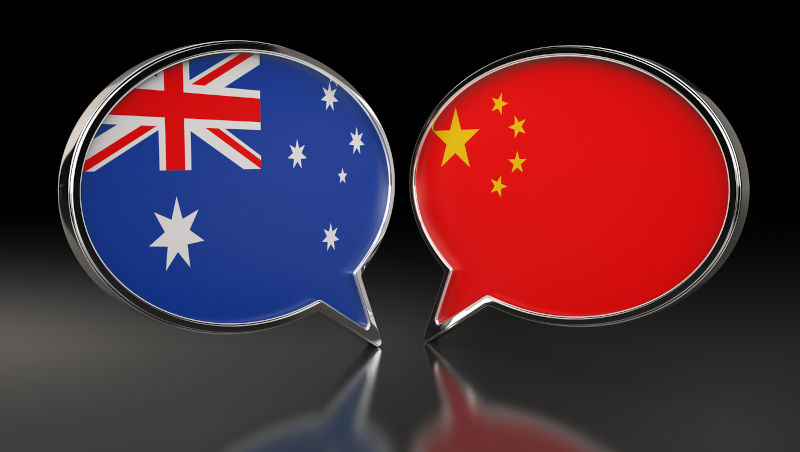Australia sleepwalking into catastrophic conflict with China
December 20, 2023
Gareth Evans review of Australias strategic relationship with the United States (Why Australia cant rely on the US to save it from China, 12 December) provides a timely wake-up call on the dangers of Australia sleepwalking into what would be a catastrophic conflict with China.
As Evans says, a cutting-edge issue is whether the US will really feel obliged to rush to our military defence if we are ever seriously threatened, or only do so if its own national interests are also directly at stake … it defies credibility to think that Washington would risk losing Los Angeles to save Sydney.
Australias assessment of its own national interest in foreign policy never seems to go beyond an irrational, neo-colonial assumption that it is identical to that of the United States. As Evans relates, Peter Dutton said in 2021 that it was inconceivable that we wouldnt support the US in any military action it chose to take. Defence minister Marles made clear his own view in October that Australia cannot be a passive bystander in the event of war. Think back to 1939 when Menzies said Great Britain has declared war upon [Germany], and as a result, Australia is also at war. What has really changed?
One change that has become apparent in the last decade, since the existence of the Five Eyes group was revealed, is the extent to which the intelligence agencies now influence Australias foreign and defence policy. Moreover, despite the groups multi-ocular title, Five Eyes appears to analyse world affairs through a prism that provides a narrow, one-eyed view. Not only is this clearly an American view, but particularly in relation to the strategic competition between the US and China, it reflects the perspective emanating from Fairfax, Virginia and the Pentagon rather than from Foggy Bottom.
Australia never seems to have made a careful assessment of the relative benefits each country derives from the American relationship and how, in our national interest, we might derive a greater advantage from it. Australia is important to America mainly because of our geography. The existence of a physically large, Anglophone, democratic country with no land borders strategically located in the Indo Pacific and the southern hemisphere is potentially of enormous value to the US, which has boundless interests in this region.
Our geography has been of critical significance since the very beginning of the relationship when General Douglas MacArthur landed in Australia in March 1942. While MacArthur publicly promoted the bond of consanguinity between the US and White Australia, he privately made clear to Prime Minister Curtin at the outset that the US had no particular national interest in defending Australia. He was here because of an accident of geography; the US needed a large and secure base in this theatre from which they could eventually go forth and defeat Japan.
Curtin, whose reputation as a great Australian leader should be more contestable, failed to understand that Americas need for an Australian base gave his government considerable agency in the relationship. Instead, he established an unfortunate precedent by surrendering substantial Australian sovereignty to the egotistical American general, who became commander of all Australian land and air forces in the region. He later confessed he was taken by surprise by the bounty provided by the Australian prime minister, a gift he proceeded to employ to advance American national interests. As a result, according to military historian Max Hastings, Australia seemed almost to vanish from the [Pacific] war after 1943 the countrys internal dissensions, together with American dominance of the Pacific theatre, caused the Australian army to be relegated to a frankly humiliating role in 1944-45.
With the defeat of Japan and the onset of the Cold War with the Soviet Union, the Australian relationship did not figure significantly in Americas strategic priorities. In 1951, the US concluded both the ANZUS alliance with Australia and New Zealand and the Mutual Security Treaty with Japan. Neither treaty included a security guarantee along the lines of Article V of NATO. In 1960, however, in return for allowing the US to establish military bases on its territory, Japan successfully insisted on the inclusion of a security guarantee in its treaty, including extended nuclear deterrence.
At much the same time, the rapidly developing space race between the US and the Soviet Union provided a new focus for American interest in the strategic advantages provided by Australias geography. In 1962, a White House position paper proposed that with ample space, relatively advanced technology, political stability and conservative government, Australia has become a uniquely desirable base for both military and civilian programs involving operations in the Southern Hemisphere.
Bill Battle, US Ambassador in Canberra in the early 1960s, negotiated very favourable terms with the Menzies government for the establishment of major strategic installations in Australia, including Pine Gap, Nurrungar and North West Cape. These facilities were regarded by the US as essential to its national security. Pine Gap, in particular, was an advanced espionage facility that, together with its sister station in the UK, provided global coverage of electronic communications as well as critical data on the performance of Soviet inter-continental ballistic missiles. As the Fraser government later confirmed, these highly advanced installations also made Australia a nuclear target.
Gough Whitlam took office in 1972 committed to forging a more independent foreign policy. In April 1974, having ratified Australias accession to the Nuclear Non-Proliferation Treaty in the previous year, he stated in Parliament that no new foreign bases would be permitted and leases on existing facilities would not be renewed. With the lease on Pine Gap due to expire in December 1975, this set the cat among the pigeons in Washington.
This is the only significant occasion in which Australia essentially stood up to the Americans in its own national interest. It didnt end well. In July 1974, Henry Kissinger, Secretary of State and National Security Adviser to President Nixon, advised the president to commission a National Strategic Security Memorandum (NSSM 204) reviewing the whole relationship with Australia.
An analysis of the still highly redacted NSSM 204, released in 2014, reveals that in the mid-1970s Australias strategic importance to the US was considerably greater than was appreciated at the time. A number of strategic, economic and cultural elements in the relationship were identified and rated in terms of their importance to both the US and Australia. Only three of the various elements received the top grade in terms of importance, being rated as exceedingly high. These three, which were all benefits to the US, were the CIA espionage facility at Pine Gap, the naval communications station at North West Cape and, more generally, American investment in Australia.
Tellingly, although the overall relationship with the US was rated as being of very high importance to Australia in light of our fears of being isolated in Asia, not one individual element was rated as being of exceedingly high importance to Australia.
The policy approach adopted by Kissinger as a result of NSSM204 is heavily redacted, but it is possible to identify the two main alternative options that were considered. A principled approach that recognised Australias right to pursue its sovereign national interests while retaining ANZUS, was put forward by Ambassador Marshall Green and supported by the State Department. Green proposed a negotiation with Whitlam to extend the lease on Pine Gap to 1978, which would allow time for the facility to be moved to Guam.
This was not adopted by Kissinger, who, no doubt, would have dismissed it as limp wristed. Instead, it appears the CIAs preferred option was adopted, namely to seek to retain the facilities in Australia for as long as possible. It is highly suggestive that Whitlam was dismissed from office in November 1975, just before the lease on Pine Gap was due to expire. The lease was immediately renewed by Whitlams successor, Malcolm Fraser.
With the rise of China to great power status, the benefits the US derives from Australias geography are only likely to have increased over the past half century. Successive Australian governments have never understood that America has always needed Australia at least as much as we have needed the US. Consequently, Australias foreign policy has been fundamentally misguided for the last sixty years. In a consistent but unnecessary effort to reinforce American support for what is an inadequate alliance, we have followed the US into wars such as in Vietnam, Iraq and arguably Afghanistan that were not in Australias national interest.
Instead, when the US installed major defence facilities on Australian soil in the 1960s, we should have followed Japan and insisted on the inclusion of a security guarantee in the ANZUS treaty. Australia is of greater strategic importance to America than almost every NATO country and yet, under the terms of its alliance with the US, North Macedonia is guaranteed a far higher level of security, including extended nuclear deterrence, than is provided to Australia under ANZUS.
And now we have AUKUS. The author is part of a group that, in seeking a more self-reliant sovereign capability to defend Australia, advocated the procurement of nuclear-powered attack submarines for the RAN. It is difficult to disagree with Gareth Evans, however, that by acquiring American submarines that would otherwise be part of the US fleet, we may be unable to resist participating in a war with China that would be highly damaging to our national interest. As Curran has reported, President Bidens Asia tsar, Kurt Campbell described the AUKUS agreement as getting Australia off the fence. We have them locked in now for the next 40 years.
As Evans suggests, Australias lack of a security guarantee and extended nuclear deterrence leaves us in a vulnerable position. We put ourselves at the front of the pack in challenging China over COVID-19 and other issues and suffered damaging economic coercion as a result. The Americans told us they had our backs, but any material support was lacking. Instead, US industries moved into our former markets.
Now consider a showdown over Taiwan. China presents Taipei with an ultimatum. The Americans, being outgunned by the PLAs conventional forces in the theatre, resort to nuclear blackmail, as they have in the past. How would China wargame a response? One option would be to attack Pine Gap with a long-range missile armed with a small, low yield nuclear warhead. Pine Gap would be a legitimate military target and the civilian population around Alice Springs is not extensive. It would not even be the first nuclear explosion in central Australia.
In response to such an attack, under ANZUS the US would be required only to consult with the Australian government. China would have demonstrated its nuclear capability. No rational US president would risk sacrificing Los Angeles in defence of Taiwanese autonomy. The nuclear codes would go back into the briefcase. A peaceful solution would be found.
And Australia would have taken one for the team.

